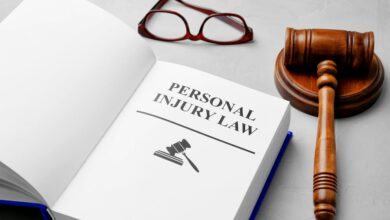My Rights if I Get Arrested

Getting arrested is a frightening experience. If you are accused of a crime, you should do everything in your power to fight for your freedom. Not all arrests are legal. There is a procedure police officers must follow when they make an arrest. If they do not follow these procedures properly, a criminal defense attorney can have the charges discarded. Everyone should understand their rights if they get arrested, regardless of if they have committed a crime or not.
Search Warrants
According to Florida Criminal Defense Legal Group, PLLC, a police officer may stop you in your car or on the street if they have reasonable suspicion of a crime.
A search warrant is a document issued by a judge who has authority in your jurisdiction. Unfortunately, police are not always required to obtain a search warrant to search a home or other property.
If you allow the police to search your home, they do not need a warrant. It may be your instinct to allow the police into your home if you have not done anything illegal. However, you should always require the police to obtain a warrant. A warrant creates an extra document detailing the time and date of the search. It also details the reasons for the search.
An officer can search your car without a warrant if something in plain sight captures their attention. If an officer pulls you over for a traffic violation and sees an illegal object on your dashboard, they are permitted to search your car.
Read More: What is the most common type of criminal defense?
Warrants for Your Arrest
A police officer is not required to have a warrant for your arrest if they witness a crime in progress. If the officer is arresting you for a crime they did not witness, they must receive a warrant issued by a judge.
Miranda Rights
During an arrest, the arresting officer is legally required to read you your Miranda Rights. A police officer may ask you the country in which you were born or your citizenship status, but you are under no obligation to answer.
Getting arrested is stressful and it is natural to defend yourself when someone accuses you of breaking the law. Criminal attorneys will advise you to never say anything until you have had a chance to speak with your lawyer. You are not even required to tell the police who you are unless you are arrested for a traffic violation.
Do not lie to the police under any circumstance. In some cases, you may tell them something you believe to be true, but is false. People often forget things in stressful situations. You should try to remember everything the officer says and does, as well as everything you say to them. It could be the difference between having the charges discarded and having to stand trial.
You should never try to flee an arrest or physically resist arrest. Fleeing the scene will be held against you in court. It could potentially result in more charges being brought against you.
Interrogation
Police may try to question you about a crime before or after you are arrested in an interrogation room. A lawyer will advise you to never answer questions without an attorney present. The police may tell you everything will be easier if you just talk to them. However, this is not true. You have the right to have an attorney with you at all times. They will understand what questions are permissible and what questions you should not answer.
Read More: Certificate of Conduct: Why Would You Need a Certificate of Good Conduct?
Booking
Once arrested, you will go to a police station where booking will take place for a crime. If your case is bondable, the judge will set a bond. You will have the opportunity to pay the bond, have a friend or relative pay it for you, or call a bondsman.
First Appearance
You will have a very brief appearance before a judge, where you will receive a formal charge..Call an attorney before your first appearance. They can argue for you and potentially get your charges dropped or reduced. If you are held without bond, your lawyer may be able to negotiate a bond with the judge.
A trained Florida criminal attorney will be able to get your charges dismissed if the police have violated protocol. They will thoroughly research your case and make every argument possible to secure your freedom. Florida may be tough on crime, but Americans have rights that no law enforcement agency can take away.












One Comment